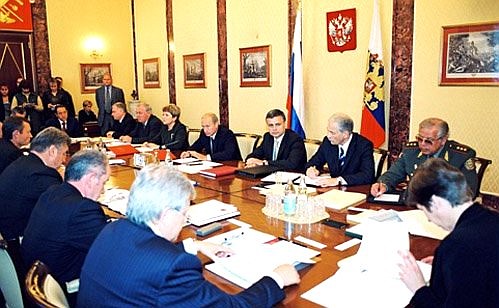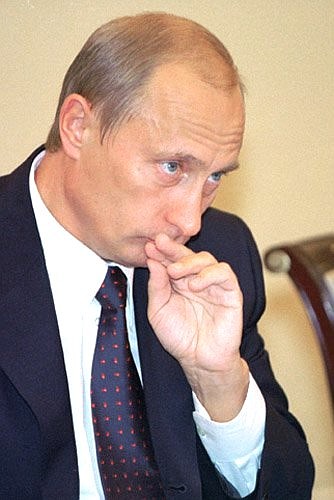President Putin expressed concern with the fact that drug addiction was becoming a nationwide social disaster. Russian security agencies now estimate the number of drug users, mostly young people, at 3 million.
Mr Putin said the state could combat drug addiction more effectively, and that all public forces must pool their efforts in order to cope with this evil. The Russian leader said the drug addiction prevention strategy must include preventive, educational, medical and law-enforcement measures.
President Putin said public resistance to drugs was a key element in fighting drug dealers, and that the education system, the federal youth policy and social work were all needed to achieve this goal.
The Russian leader said top-quality and affordable treatment for drug addicts was another important objective, and that it would otherwise be impossible to fight drug addiction as a medical problem.
Measures to strengthen border and customs control, as well as preventive operations, and expanded international cooperation, are other highly important aspects.
After the meeting, President Putin signed a decree on establishing the State Committee for the Control of Drugs and Psychotropic Substances Circulation in the Russian Federation. The new state committee will be under the national Internal Affairs Ministry.
The latter was ordered to coordinate the efforts of federal agencies at every level in combating illicit drug trafficking and to prepare proposals on streamlining Russia’s cooperation with other countries.
Russia now has nearly 500,000 registered drug addicts, most of whom are seriously ill. Drug addiction is particularly widespread in the Kaliningrad, Tver Krasnodar, Stavropol regions, the Russian Far East, Moscow and St Petersburg. Over 4,000 local crime groups illegally sell drugs in Russia.

